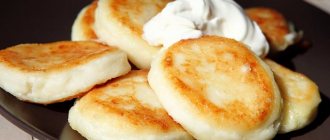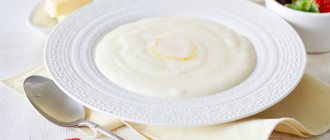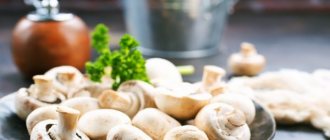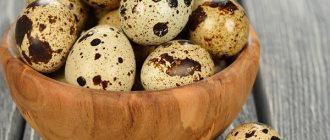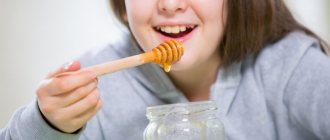Many young mothers face the problem of insufficient lactation. Older women, based on their experience, often recommend tea with milk when breastfeeding. This is one of the proven folk remedies. There is an opinion that it really helps. But some women also say that such tea can cause colic in the baby and diseases of the digestive system. Which opinion is actually fair? What are the benefits of tea with milk during breastfeeding?
Benefits and harms
In general, of course, if you listen to the opinion of doctors, then to enhance lactation they recommend putting the baby to the breast as often as possible. After all, the hormones prolactin and oxytocin are responsible for the amount of milk. And frequent feeding helps stimulate their production in the body of a young mother. But what about the huge number of women who once helped tea with milk while breastfeeding? And our grandmothers, mothers and aunts did not know any other way.
The mechanism of action of this folk remedy is actually simple - any hot drink increases the flow of milk. The oxytocin reflex is stimulated due to exposure to heat. Then the milk begins to actively flow to the nipples. It is easier for the baby to suck it out. Therefore, it seems that there is more of it. But in fact, the functioning of the mammary glands simply returned to normal.
But often the child develops colic, problems with stool, and increased nervousness if the mother drinks tea with milk to stimulate lactation. The fact is that not all babies absorb protein from cow products. After all, their body does not yet produce enzymes to process it. Therefore, constipation or, conversely, loose, foamy stools are possible. In this case, you should exclude milk from your diet. And in tea you can replace it with cream that does not contain lactose. But it will be even more beneficial to drink tea with condensed milk while breastfeeding.
Beneficial properties of tea
Black and green tea are harvested from the same tea bush of the Camellia genus. They differ only in the manufacturing method. When producing green varieties, oxidation (fermentation) of tea leaves with air stops earlier than for black ones. Therefore, green tea retains more beneficial elements than black tea.
The tea leaf contains vitamins A, C, E, proteins and amino acids. The phenols included in the composition act as an adsorbent and remove heavy metals from the body. Tannins provide astringency, and essential oils provide aroma and taste. Tannin lowers cholesterol levels. Alkaloids, one of which is caffeine, tone the nervous system. Antioxidants protect cells from the negative effects of free radicals.
Green tea is a great alternative to black
The second problem that can be observed in this situation is the increased nervousness of the baby. It happens that there is a positive effect of such a folk remedy on his body, but at the same time the child sleeps poorly, is hyperactive, and often cries. This is due to the caffeine content in black tea. It has a tonic effect on the baby’s still fragile nervous system. We recommend replacing it. For example, green tea with milk during breastfeeding will not only help lactation, but also calm the baby. The drink will also strengthen the nervous system of the mother and her baby.
Can I have green tea while breastfeeding?
The answer here is quite simple - yes. This drink contains a lot of useful properties that are so necessary for a woman and her little one during the postpartum period. However, as with every component of your diet, there are also pros and cons. Therefore, you need to understand that in order to get more benefit than harm, you just need to follow the recommendations for the proper preparation and use of such a drink. In addition, the opinion that green tea increases lactation is erroneous.
Value and Positive Impact
- A rich vitamin complex, including tocopherol, ascorbic acid, B vitamins, vitamins A, K, P. Due to the action of these biologically active substances, the body is enriched with antioxidants, improves immunity, receives prevention of the development of abnormal cells, autoimmune pathologies, strengthens the walls of blood vessels .
- High mineral content. A special place is occupied by calcium, iodine, potassium, manganese, zinc, iron, magnesium and phosphorus.
- Green tea contains catechins, natural antioxidants. They play an important role in the prevention of cancer.
- Contains tannins and an almost complete list of amino acids necessary to strengthen the body.
The action of green tea has the following effect on the body:
- Tones and improves mood.
- Increases the performance of the nervous and cardiovascular systems.
- Affects memory and intelligence, significantly enhancing these skills.
- Prevents the development of cancer, atherosclerosis, and hypertension.
- Improves the functioning of the liver and excretory system.
- Improves metabolism, removes toxic substances from the body. Which helps normalize weight.
- Improves the quality of blood circulation, increases the rate of oxygen exchange between cells and tissues of the body.
- Has an anti-inflammatory effect.
- Reduces the likelihood of developing caries and has a beneficial effect on the gums.
Cons and contraindications
The greatest harm to the body is caused by caffeine, which is contained in this drink, although in less quantity than in coffee and black tea (20% per 100 grams). The maximum concentration of this substance in breast milk is observed within an hour after drinking tea. Therefore, at this time you definitely cannot put the baby to the breast. Caffeine can continue to have its effect for 7 hours. And all the breakdown products of this substance will be completely eliminated from the body only after a day.
Caffeine affects your baby in the following ways:
- The baby is capricious and looks overexcited.
- With frequent use, calcium is washed out and is poorly absorbed by the body. As a result, bones become brittle and teeth deteriorate greatly.
- Problems arise in the functioning of the digestive system.
- The baby does not sleep well at night, and even insomnia is possible.
- Risk of developing allergies.
Green tea, despite all its benefits, is not suitable for all people. It should not be drunk in the following cases:
- During the period of gestation.
- At low pressure.
- For pathologies of the excretory and digestive systems.
- With increased nervousness.
However, you need to understand that the negative effect can be avoided or at least reduced if you drink tea in moderation and prepare it correctly. If you drink more than five cups of green tea per day, you can get severe intoxication of the body with polyphenols.
I did not drink green tea during pregnancy or while breastfeeding. I excluded it from my diet due to low blood pressure. But my sister preferred this drink; she believed that it was better to drink green tea than black tea.
Herbal teas
Currently, there is a huge selection of lactation herbal preparations. You can brew nettle instead of tea. It will improve the quality of milk and help the woman’s body recover after childbirth. Fennel decoction also stimulates lactation well. If you drink it before feeding, the baby will not have problems with gas formation. Fenugreek is the most powerful lactogenic agent, and goat rue can increase milk volume by 50%.
Doctor Komarovsky's opinion
In addition, a nursing mother needs to replenish fluid loss. Dr. Komarovsky recommends drinking one to two liters of warm drink per day. In this case, it is necessary to divide it into small portions and drink a glass 20–30 minutes before each feeding. This will have a beneficial effect on the psycho-emotional state of the mother and stimulates a flow of fluid to the nipples. Therefore, the doctor recommends tea with milk when breastfeeding. Komarovsky also emphasizes the following point: in order for normal lactation to be established, the first 28 days of a baby’s life must be fed on demand, and not by the hour. The more often this happens at the stage of lactation, the better.
What else affects lactation? A young mother should eat well. The diet should include cereals, vegetables, and lean boiled meat. It is necessary to exclude canned food, semi-finished products, alcoholic and carbonated drinks, and any other products that can cause increased gas formation or allergies in the baby. Also, the formation of lactation is hampered by smoking and an unstable psycho-emotional state.
Drinks with milk
In order for the mother's product to contain all the necessary and beneficial substances, you can drink not only tea with milk while breastfeeding. Recipes for decoctions used in traditional medicine for insufficient lactation are varied. Here are some of them:
- Drink made from walnuts. Pour a glass filled with them into a larger container. Pour a liter of hot milk and leave to steep for 4 hours. Take 2 times a day, one third of a glass.
- Carrot delicacy. Mix 2 cups of warm milk with a couple of tablespoons of grated vegetable. You need to drink one glass three times a day.
- Fennel decoction. Mix it with dill and anise. The amount of each ingredient is a teaspoon. Pour a glass of boiling water over the mixture. Insist for an hour. Drink half a glass twice a day, forty minutes after meals.
Ginger tea, dill water, chamomile and rose hip decoctions help improve lactation. It is strictly not recommended to take aloe vera extract, ginseng, infusions of St. John's wort, rhubarb, wormwood, coltsfoot, buckthorn, and comfrey. They not only reduce the amount of milk, but can also cause serious harm to the baby’s health. You should also not brew mint and lemon balm.
What can nursing mothers add to tea?
The most common additives to various teas in the vastness of our Motherland are sugar, lemon, and milk. Is it possible to add these products while breastfeeding?
Milk
Contrary to popular belief, milk tea does not increase the volume of milk in a woman's breasts. This drink, like other warm liquids, only promotes better “expulsion” of mother’s milk. At the same time, dairy products (cream, milk) added to tea can also cause colic and an allergic reaction in the baby. Therefore, nursing mothers can drink tea with added milk, but be careful.
It is not recommended to drink flavored, unnatural teas during the feeding phase. It is also better to give up hibiscus.
The following video explains what women can drink while breastfeeding and in what quantities:
Breastfeeding women should not force themselves into strict dietary restrictions. The main thing is to drink tea according to the recommendations, the main ones, of course, being medical ones. Hot drinks not only ensure a flow of milk, but also improve a woman’s emotional state, which is very important when breastfeeding a baby.
Lemon
This bright fruit is a strong allergen, so you need to add it to tea very carefully. If a woman consumed lemon while she was pregnant, then most likely the born baby will not be allergic to citrus. In any case, you should first add a small slice of lemon to your tea. If the child does not have negative symptoms, nursing women are not prohibited from drinking this drink.
Sugar
Young mothers can take 1-2 cups of tea per day, adding 1 tsp. sugar per mug. However, as in other cases, the baby’s reaction is important here. If a child becomes restless, sleeps poorly, etc., this may indicate that sweet tea is negatively affecting him.
To understand this, it is enough to exclude sugar from the drink. If after this the baby’s condition returned to normal, then granulated sugar was the cause of concern. In this case, regular sugar can be replaced with fructose (note that it is sweeter). This sweetener practically does not cause intestinal disorders in the baby.
How to make tea with milk?
It is recommended to prepare tea with milk during breastfeeding as follows:
- Brew weak green tea. Choose regular, without flavoring and aromatic additives. After all, they can cause allergies in the baby.
- Add boiled milk to taste. If the baby is less than two months old, replace it with a spoonful of condensed milk, dry cream, or give up milk altogether.
- You can add a spoon of honey.
You need to drink tea warm, almost hot, half an hour before feeding. Make sure that the amount of tea you drink per day does not exceed one liter. In addition to this drink, you can also drink about a liter of compote and chamomile decoction. Don't forget about regular clean water.
How can a drink be harmful?
When answering the question whether a nursing mother can drink milk tea, it is worth mentioning that cow’s milk protein is an allergen and can harm the baby’s health. In approximately 5% of children, this protein is not absorbed, which manifests itself in the appearance of a rash and indigestion. If your baby develops colic, excessive regurgitation, restless sleep, or loose stools, it is better to avoid drinking tea with milk.
You should also be wary of taking this drink if the child was born premature or had to take antibiotics before the age of 3 months.
Of course, the presence of caffeine in tea is also not good for the baby. Although this substance is contained in small quantities, it has a cumulative effect and is slowly eliminated from the child’s body. Therefore, before they reach 3-4 months, it is better to replace tea with chamomile decoction.
Positive opinion of women
Many young mothers drink tea with milk while breastfeeding. Reviews about it are mostly positive, because it is a folk remedy that has been proven over the years. Most women consider it effective, and most importantly, safe for normalizing lactation. Many people recommend brewing linden instead of green tea, as it helps improve digestion in a newborn and relieves colic. In addition, the color of the tree is an excellent sedative. It also has a beneficial effect on the baby's nervous system. If the baby does not sleep well or is capricious, then the mother should abandon regular tea in favor of linden tea.
Many breastfeeding women are advised not to rely only on tea with milk, but also to take other special means to normalize lactation. Good reviews about Apilak tablets. The drug is made on the basis of royal jelly. He has helped many mothers whose milk “disappeared” due to stress or lack of nutrition. It is also often recommended to use breast self-massage and relaxing baths at the same time as using milk tea.
Experienced women advise relaxing, calming down, and throwing all worries out of your head before breastfeeding. Drink a large cup of warm tea with milk, wait twenty minutes. Massage your breasts, pick up your baby and start feeding. To sweeten the drink, add a little honey. Tea with milk during breastfeeding is really very useful:
- Helps restore lactation.
- Replenishes the lack of fluid in the mother's body.
- Has a calming and relaxing effect.
- If you brew fennel instead of tea, you can easily solve the problem of gas formation in a baby.
- If you brew linden or chamomile, it will calm the baby and normalize his sleep.
Thirst during lactation
So don’t constantly think hard about what is useful and what is harmful. Sometimes you want to relax. If you drank green tea during pregnancy and did not notice any unpleasant symptoms, then after childbirth you should not deny yourself the pleasure. Moreover, a nursing mother is often unbearably thirsty. Therefore, liquid should always be at hand during feeding.
Breastfeeding experts believe that you should not be thirsty during lactation, but you should also not forcefully infuse yourself with healthy infusions, tea and water. The fluid norm does not differ from standard recommendations: 1.5-2 liters per day. Exceeding the norm increases the load on the kidneys, provokes fluid retention in the tissues, and swelling.
Does it affect the child?
Green tea while breastfeeding does indeed have an effect on babies, especially those under 6 months of age. Theine found in tea leaves is the same as caffeine, only it acts more gently and lasts longer.
According to the American Academy of Pediatrics (AAP), 0.6% to 1.5% of theine from a woman's blood passes into breast milk, reaching a peak within 1 hour after eating or drinking. Mom can drink no more than 3 cups of tea a day, then the baby will receive a safe average dose.
Even trace amounts of tonic substances have an effect on the child. He may begin to have interruptions in sleep, especially during the day, he will confuse day with night and become more restless. By the way, a cup of strongly brewed green tea contains more caffeine than coffee. Therefore, not only the baby, but also the mother may begin to suffer from insomnia.
What to do? Avoid invigorating drinks and watch your child. If after 3 days the baby’s sleep improves and irritability goes away, the mother will have to find a replacement for her favorite tonic drink, for example: compote, decoction or herbal infusion, water.
